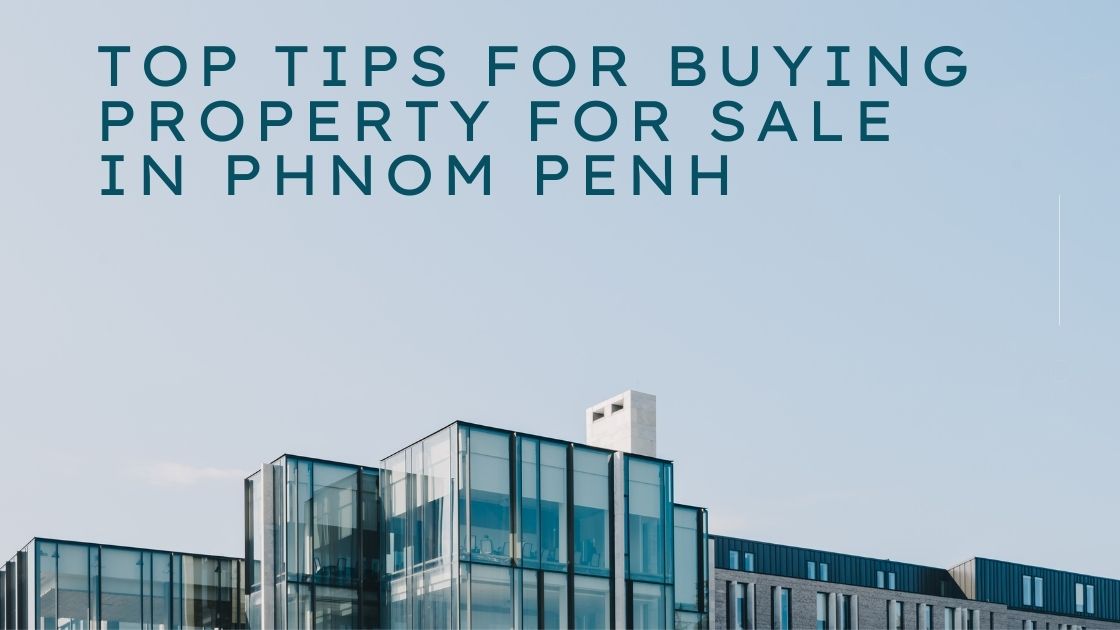Phnom Penh, Cambodia’s bustling capital, has seen tremendous growth in its real estate market over the past decade. From sleek modern condos to charming colonial homes, the city offers a variety of options for both local and foreign investors. However, buying property in Phnom Penh can be a complex process, particularly for first-time buyers. In this guide, we’ll share some essential tips to help you navigate the market and secure the right property for sale in Phnom Penh.
1. Understand Property Ownership Laws for Foreigners
If you’re a foreigner considering purchasing property in Phnom Penh, it’s important to understand the Cambodian property laws. Foreigners cannot own land directly in Cambodia but can own condominiums under the 70/30 rule, where foreigners can own up to 70% of a building, excluding the ground floor. Another option is a long-term lease or establishing a Cambodian company with a local partner, though the latter comes with its risks.
Understanding the legal landscape is crucial before you start looking for property. It’s recommended to consult a local lawyer or property expert who can help you navigate the complexities of ownership laws, ensuring your investment is secure and compliant with Cambodian regulations.
2. Choose the Right Neighborhood
Phnom Penh is a rapidly evolving city, and choosing the right neighborhood can significantly impact your property’s value and quality of life. Some of the most popular areas include:
- BKK1 (Boeung Keng Kang 1): A vibrant expat hub known for its trendy cafes, restaurants, and boutique shops. It’s a popular area for renting and buying luxury apartments.
- Tonle Bassac: Located along the Bassac River, this area offers a mix of modern high-rises and charming villas. It’s great for those seeking both residential and investment properties.
- Daun Penh: The historical heart of Phnom Penh, Daun Penh is home to colonial architecture and key cultural landmarks. If you’re interested in properties with historical value, this could be an ideal location.
For investment purposes, it’s worth exploring emerging neighborhoods like Chroy Changva and Toul Kork, where you can often find properties with more affordable prices and significant potential for future growth.
3. Work with a Reliable Real Estate Agent
Navigating Phnom Penh’s real estate market can be challenging, especially for newcomers. A reliable real estate agent can help streamline the process by providing you with valuable market insights, assisting with property viewings, and handling the legal paperwork. Agents familiar with the Phnom Penh market can also guide you toward the best deals and ensure you’re paying a fair price.
Agencies like IPS Cambodia are known for their professionalism and extensive knowledge of the local market. They offer services such as property management and legal advice, making them a good choice for both residential buyers and investors.
4. Inspect the Property Thoroughly
Before making any commitment, it’s essential to inspect the property thoroughly. Whether you’re buying a newly built condo or a traditional shophouse, you’ll want to check for potential issues like structural damage, plumbing problems, or outdated electrical systems. Hiring a professional inspector to assess the property can help identify any hidden defects that might lead to costly repairs down the line.
In some cases, you may also want to negotiate with the seller to address these issues before finalizing the purchase. For instance, if the inspection reveals significant repairs are needed, you could request a price reduction or ask the seller to make the necessary fixes.
5. Secure Financing and Understand Tax Implications
Financing your property purchase in Phnom Penh can be more complex than in other countries, especially for foreigners. Cambodian banks often require substantial down payments, and obtaining a mortgage as a foreigner can be challenging. However, some developers offer installment plans or financing options that may be worth exploring.
Additionally, don’t overlook the tax implications of buying property. In Cambodia, buyers are typically responsible for a transfer tax of 4% on the value of the property. There may also be other costs involved, such as registration fees and property maintenance taxes, so it’s crucial to budget accordingly.
6. Ensure Proper Legal Documentation
When buying property in Phnom Penh, it’s vital to ensure that all legal documents are in order. This includes verifying the property’s title to confirm that it’s free from disputes or claims. Cambodian properties typically come with either a hard title (more secure and preferred for buyers) or a soft title (common in rural areas but considered less secure.
Working with a qualified lawyer can help you conduct a thorough title search and ensure all documents, including contracts, are properly translated into Khmer (the official language) for legal compliance.
7. Plan for the Future
Whether you’re buying a property for personal use or as an investment, it’s important to think about the future. Phnom Penh’s real estate market has been growing steadily, making it an attractive option for long-term investment. Consider factors like potential rental income, future market growth, and neighborhood development when making your decision.
By understanding the local property market, working with a reputable agent, and ensuring all legalities are in order, you can confidently purchase the right property for sale in Phnom Penh. With the city’s ongoing growth and development, investing in real estate here offers significant potential for both personal and financial gains.
